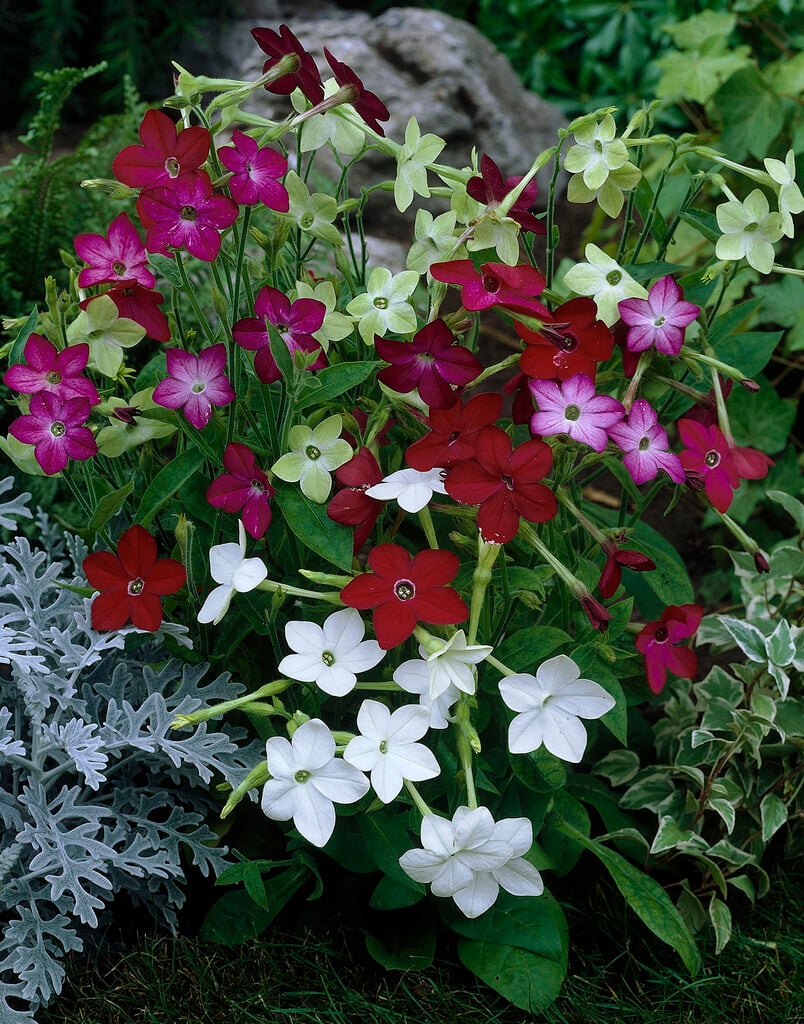Nicotiana alata
jasmine tobacco
A short-lived rosette-forming perennial to a height of 1.5m, with large spoon-shaped dark green leaves at the base, becoming smaller higher up. Throughout summer and into autumn, tubular greenish-yellow flowers with funnel-shaped mouths appear. These are strongly scented at night
Size
Ultimate height
1–1.5 metresTime to ultimate height
1–2 yearsUltimate spread
0.1–0.5 metresGrowing conditions
Moisture
Moist but well–drained, Well–drainedpH
Acid, Alkaline, NeutralColour & scent
| Stem | Flower | Foliage | Fruit | |
| Spring | Green | |||
|---|---|---|---|---|
| Summer | Green Yellow | Green | ||
| Autumn | Green Yellow | Green | ||
| Winter |
Position
- Full sun
- Partial shade
Aspect
West–facing or South–facing or East–facing
Exposure
Sheltered Hardiness
H3Botanical details
- Family
- Solanaceae
- Native to GB / Ireland
- No
- Foliage
- Deciduous
- Habit
- Columnar upright
- Potentially harmful
- Harmful if eaten, avoid skin contact. Wear gloves and other protective equipment when handling. Pets (dogs): Harmful if eaten, avoid skin contact. For further information and contact numbers regarding pets, see the HTA guide to potentially harmful plants
- Genus
Nicotiana can be annuals, biennials, perennials or shrubs, with simple, alternate leaves and tubular or salver-shaped, often fragrant flowers borne in racemes or panicles in summer or autumn
- Name status
Correct
How to grow
Cultivation
Grow in fertile, moist but well-drained soil in full sun or partial shade
Propagation
Propagate by seed. Surface sow seeds, do not exclude light. Germinate at 18°C (64°F)
Suggested planting locations and garden types
- City and courtyard gardens
- Cottage and informal garden
- Wildlife gardens
- Bedding
- Flower borders and beds
Pruning
No pruning required
Pests
May be susceptible to aphids, thrips, glasshouse whitefly and glasshouse leafhopper
Diseases
May be susceptible to grey moulds and to virus diseases
Get involved
The Royal Horticultural Society is the UK’s leading gardening charity. We aim to enrich everyone’s life through plants, and make the UK a greener and more beautiful place.
